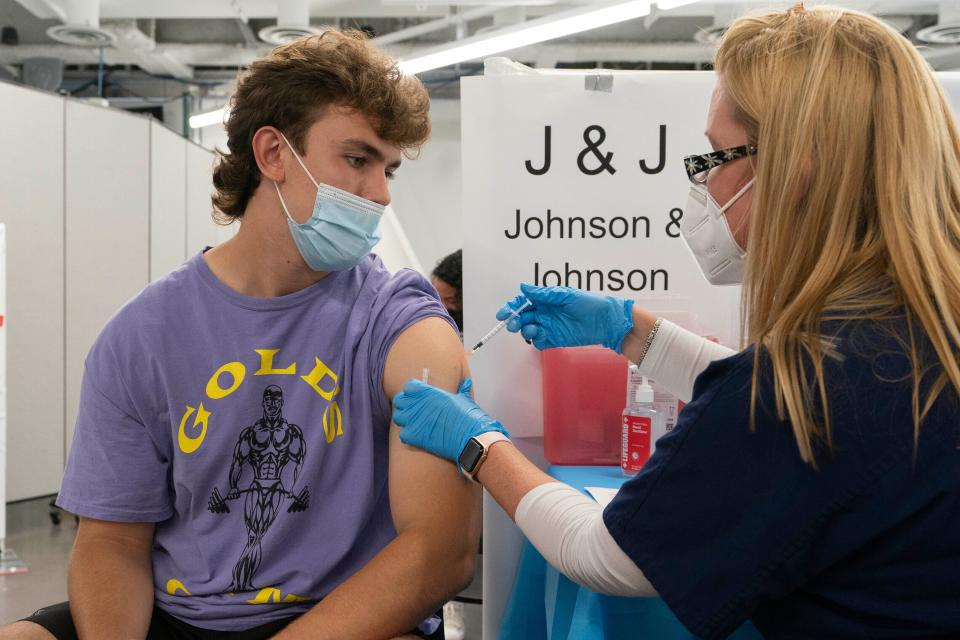Natural immunity is good. Getting vaccinated after being sick with COVID-19 is better.
Many people have caught COVID-19 over the past 20 months, despite their best efforts, or because they didn't take enough precautions against the coronavirus.
Data is just starting to emerge about how protected they may be against another infection.
As with most illnesses, contracting COVID-19 provides immune "memory" that helps protect against a future infection. But it's still unclear how sick a person has to get with COVID-19 to develop enough immune memory to be protective and for how long. That's why the Centers for Disease Control and Prevention recommends even people who have had COVID-19 get vaccinated against it.
A growing body of research suggests infection plus vaccination provides the strongest protection against a wide range of variants, possibly for a long time.
People who were infected and then vaccinated some months later have "what's called 'hybrid immunity,' which is like super-immunity," said Warner Greene, a virologist at the Gladstone Institutes in San Francisco.
This combined protection seems to last a long time, according to a new study in the journal Science. It may last far longer than vaccination alone, he said, though that hasn't been proven yet.

Greene warns against seeking out infection to get such good protection, though. Severe disease is no fun and can strike anyone.
Infectious disease expert Dr. Monica Gandhi said public health officials too often downplay the protection provided by infection.
"To deny natural immunity does not generate trust," said Gandhi, an infectious disease expert at the University of California, San Francisco and San Francisco General Hospital.
Getting vaccinated three months – or even better, six months – after infection provides the best possible protection, she said. But adding a second shot offers almost no additional benefit over the first, nor do people who have been fully vaccinated and infected need a booster at this point.
"If you're naturally immune, get one dose," Gandhi said.
In a new study from the Rockefeller Institute in New York, researchers found that people who get vaccinated after catching COVID-19 may be protected against a wider range of variants than people who get vaccinated alone.
Still, said Theodora Hatziioannou, an author on the study, if you have to pick one, go with vaccination.
Shots, she said, lead to higher levels of neutralizing antibodies, naturally made substances that fight an infection. Neutralizing antibodies wane with time, so the more you start out with, the better.
"At five-six months post-vaccination or infection," she said, "the vaccinated participants had overall higher levels of neutralizing antibodies than the infected, including against variants."
Unanswered questions
There are still open questions when it comes to natural immunity and the protection it affords.
It's not clear, for instance, how soon someone can get infected with COVID-19 a second time.

 Yahoo Autos
Yahoo Autos 